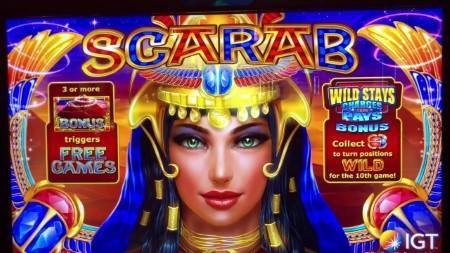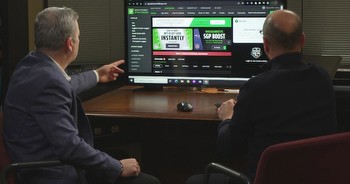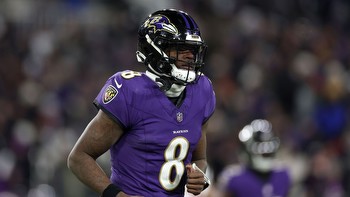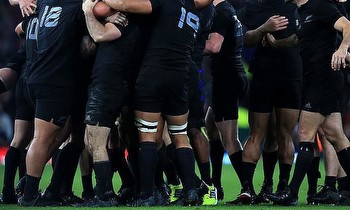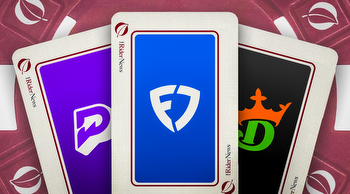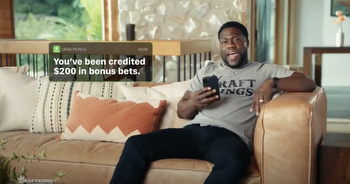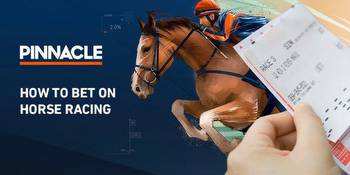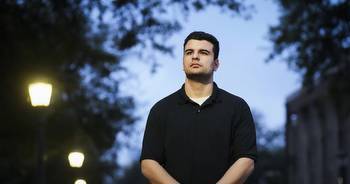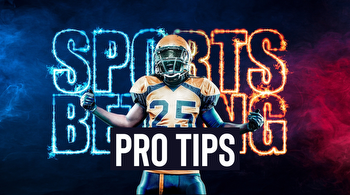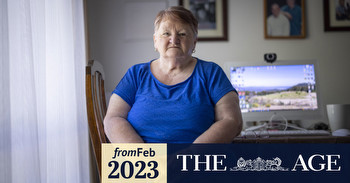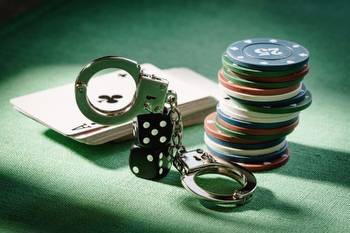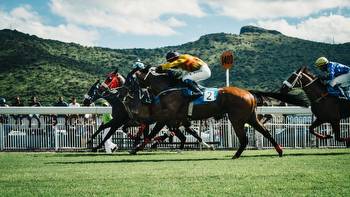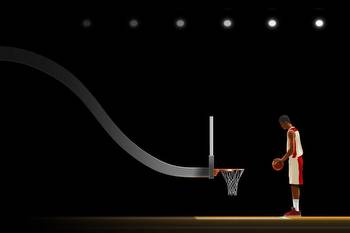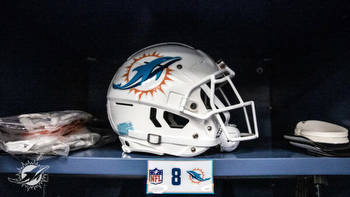I Was a Statistics Professor. I Used Sports Betting to Retire at 43
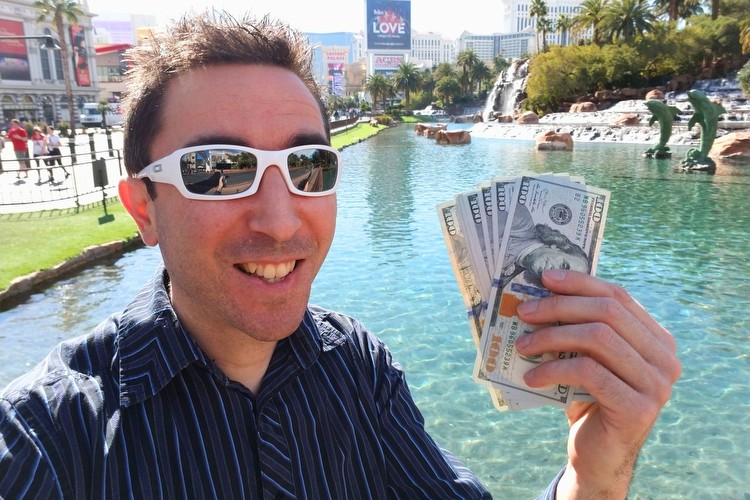
I was very good at mathematics in high school and it quickly became my favorite class. I've also loved sports since I was very young. So, naturally, I became interested in sports betting.
But, like most people, I was quite bad at it to begin with because I was betting based on what I saw on TV or in the games I watched. Later, I started using my skills with numbers—and it made a huge difference.
I first became successful aged 20 in 1999. I heard about these new online sportsbooks from my uncle, so I checked them out and realized there were many arbitrage opportunities because of the price differences between betting markets.
You could bet both sides and have a guaranteed profit no matter which team won.
At that time, I was betting on any sport, any league, even those I knew nothing about, like Australian football or darts. Any sport, I would bet it if I saw an opportunity to profit. That's how I began.
My parents did not like it at all, even when I explained to them how arbitrage made it a guaranteed profit.
They were worried about me sending money to Costa Rica, for example, where some of these online betting companies were based. They were thinking well, even if you win, they may not pay you—then what are you going to do about it?
But I took the chance. When they saw the checks coming in the mail every week, they started supporting me more and getting interested, asking how I was doing in my bets.
It worked very well for three or four years, but it became increasingly difficult to find good opportunities as the lines between the different sportsbooks became more similar.
Today, you could still do some arbitrage, but you might have to work very hard and you would probably earn less money than if you got a job at McDonald's, so it's not worth it.
But back then in the early 2000s, the odds were so different between sportsbooks that there were lots of lucrative arbitrage opportunities, and I used my mathematical background to take advantage.
I was a student at the time in statistics. I took statistics courses for nine years at the university level, gaining a PhD and then becoming a professor.
I used my knowledge to create mathematical models that would help me predict the probability that each team would win. Or, for what's called a player proposition bets, where you can bet on the performance of a given player.
For example, is he going to get more or less than 72 and a half rushing yards in the NFL? Those bets are the most lucrative because the lines are not as accurate, and so are easier to beat.
The biggest single bet I've made was for around $10,000. That's when I started my YouTube channel in 2019.
I wanted to begin with an interesting video and I was very confident about the Buffalo Bills in the NFL; that they were breaking out of an 18-year drought of missing the playoffs and poor performance.
The line was they would win over or under six and a half games, and I was bullish on them to go over that total. So I made a video showing me driving to the state of New Jersey to place those big bets and explaining why.
I won $18,000 on that in total, so approximately an $8,000 profit. But the biggest single gain I've ever made was on a different bet.
I had bet around $500 on Shohei Ohtani to be MLB's MVP of the American League in 2021. I was really nervous the day they were announcing the MVP. I knew we had a good chance but still I was worried—and he came through. I made $15,000.
Some years are better than others for my success rate. I'd say it's between 55 and 57 percent, where the breakeven point is 52 percent. On proposition bets it's higher, a 58 to 60 percent success rate.
But it hasn't all been sports betting. In 2008, some casinos started offering a live casino service via camera feeds online. The camera would show you a live dealer shuffling and dealing cards to play games like Blackjack or Baccarat.
There was one specific casino—I prefer not to mention its name—that I noticed was using bigger cards than normal. The dealers found it difficult to shuffle the cards because they were so big.
So, I thought the cards were not shuffled well, and therefore you have blocks of 10, 15 cards that just stick together and remain in the same order as they were before shuffling.
I had a big system set up and was using three computers at a time. I was able on many occasions to know in advance the next eight, nine, 10 cards that would come up—giving me a huge edge over the casino.
That produced some serious gains over a year and a half before they finally found out the big mistake they had made. I had trouble withdrawing money when they knew something was up, but they ended up paying me anyway.
I limited myself from playing too much because I didn't want to win $200,000 in a week; that would be too suspicious. So, I played just a few hours per week, which helped me do it for a year and a half.
At first, I played Blackjack because it's a game I knew, but later I realized that knowing the cards in advance was much more useful—and profitable—when playing Baccarat. So, I switched.
Overall, I made somewhere between $500,000 and $700,000. There were two separate nights where I played for a couple of hours and won more than $100,000 because the cards were so badly shuffled.
I even started losing on purpose for a few games. I would win six or seven in a row, and thought it was going to be too suspicious. So, I'd then lose $3,000 on purpose.
I stopped after two and a half hours. I could have kept going, but they were soon going to realize there was a problem. It was hard to start to stop, but I had to do it.
Most people think casinos are unbeatable. And most of the time, they are. But it's something that I enjoy doing. The money is fun. But the challenge of trying to beat the unbeatable is highly motivating for me.
At the moment, I'm doing a mix of different things with my betting. One of them is what I would call value betting.
The sharpest sportsbook in the world, in my view, is Pinnacle. They tend to have the most accurate lines. So, when a sportsbook has odds that differ significantly from Pinnacle, I take that as a sign it's a bad line and so I should bet it.
I like to compare several sportsbooks. And if I see a line that is quite different, especially from Pinnacle, that's a good bet most of the time.
Of course, you might lose it. But in the long run, if you do that like 1,000 times, you will win more often than you will lose for sure.
But nobody should read this and think that it's easy to win with sports betting. It requires a lot of hard work and statistical skill. I always try to tell people to make sure that any money invested in sports betting should be money they're OK losing.
I hate it when people say they lost rent or mortgage money. It doesn't make sense. It always must be money that you can afford to lose; you need to be smart about it and very disciplined with your betting.
Some people might be regular winners, but after losing three in a row, they just lose control and make a huge bet that they also lose, and it wipes out their bankrolls
I know it's not easy to have discipline. But when you go through losing skids—and everybody goes through losing skids—how you handle them is extremely important.
There was the fear of developing an addiction when I was younger. I loved betting and it made the games more exciting. As I grew older, though, I don't feel addicted at all.
I don't feel like I need to bet. It's fun to me, and I only bet when I really feel like I have an advantage over the sportsbooks. Otherwise, I don't. I only do it because it brings in money.
In all my betting to date, I've made a net profit of between one and two million dollars, and it allowed me to retire from my job as a college professor at 43.
Retiring felt very, very good. Even before I started working, I had a goal to retire as young as possible. I find it sad when I hear stories of people who retire at 60, 65 and then get sick or die. So, I wanted to retire young to enjoy life.
I currently run a sports betting tips website under my Professor MJ brand—the MJ stands for my sons Maverick and Jay—a newsletter, and a YouTube channel. It would be great to work less, so I've been hiring people to help me do this stuff and grow it.
Ideally, I would love to be just managing the business and doing my picks rather than producing the videos, updating the website, and so on. And in 2024, I'll also be writing a book about what I do.
But I don't have any plans to stop betting. It doesn't feel like work to me. I just like it.
David Beaudoin is a retired statistics professor. He runs the sports betting website Professor MJ.
All views expressed are the author's own.
As told to Shane Croucher.
Do you have a unique experience or personal story to share? Email the My Turn team at [email protected].
Newsweek is committed to challenging conventional wisdom and finding connections in the search for common ground.
Newsweek is committed to challenging conventional wisdom and finding connections in the search for common ground.
